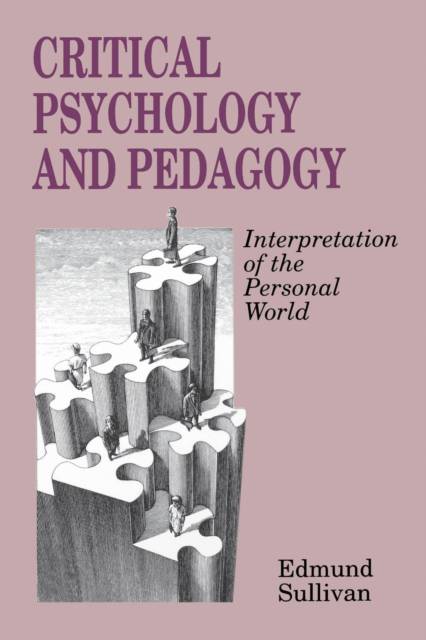
- Afhalen na 1 uur in een winkel met voorraad
- Gratis thuislevering in België vanaf € 30
- Ruim aanbod met 7 miljoen producten
- Afhalen na 1 uur in een winkel met voorraad
- Gratis thuislevering in België vanaf € 30
- Ruim aanbod met 7 miljoen producten
Omschrijving
Edmund Sullivan describes the working of his book as an elaboration of its title Critical Psychology and Pedagogy: Interpretation of the Personal World. Sullivan thoroughly develops his meaning of critical psychology and demonstrates its relationship to the personal world. His bottom line: psychology is extraordinarily relevant to the current working of society, playing an important role in the organization and maintenance of its institutions. Developing this critical pedagogy for the interpretation of the personal world, Sullivan completes his work with concrete examples of how critical psychology addresses applied problems. While his examples come from his own background in education, this pedagogy can be applied productively to the psychological discourse of any area or discipline.
Critical Psychology and Pedagogy holds the individual and society in dynamic tension. In his first three chapters Sullivan critiques the notion of individualism, abandons it, and develops the concept of the `personal'. Embarking on an interdisciplinary venture, he broadens psychological discourse to deal with the personal world as it is linked to society and systematically examines the issues of power dynamics. Theory becomes moments of reflection in action. Finally, he proposes a radical orientation in which emancipatory interest in human freedom (is) based on the intentional action of persons. He completes his study by applying his pedagogy to concrete examples.Specificaties
Betrokkenen
- Auteur(s):
- Uitgeverij:
Inhoud
- Aantal bladzijden:
- 320
- Taal:
- Engels
- Reeks:
Eigenschappen
- Productcode (EAN):
- 9780897892131
- Verschijningsdatum:
- 23/04/1990
- Uitvoering:
- Paperback
- Formaat:
- Trade paperback (VS)
- Afmetingen:
- 156 mm x 234 mm
- Gewicht:
- 453 g

Alleen bij Standaard Boekhandel
Beoordelingen
We publiceren alleen reviews die voldoen aan de voorwaarden voor reviews. Bekijk onze voorwaarden voor reviews.











